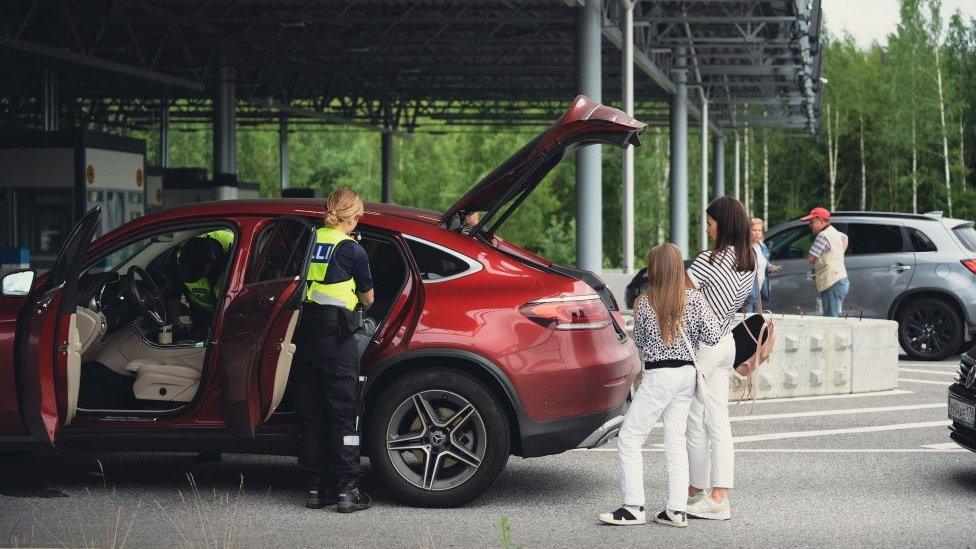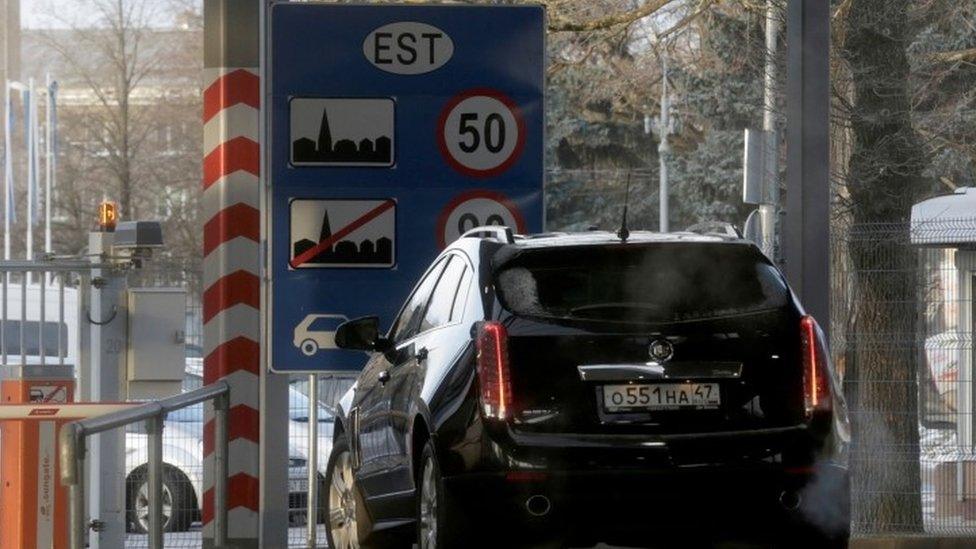Ukraine war: Russians to pay €45 more to enter EU under new rules
- Published

A customs officer checks a Russian car at the border with Finland in July
The European Union is proposing to make it more expensive and harder for Russian citizens to get visas.
Russians wanting to enter the EU will face a lengthier application process and see fees rise from €35 (£30; $34) to €80 (£69; $79).
This should continue as long as Moscow wages its war of aggression against Ukraine, the EU Commission said.
More than a million Russians have travelled to EU countries since the invasion of Ukraine in February.
Margaritis Schinas, an EU Commission vice-president, said Russia had "completely undermined" the trust on which the existing EU-Russia visa agreement was based.
Under that agreement, Russians had for 15 years enjoyed a streamlined process for getting EU visas.
EU Commission President Ursula von der Leyen, tweeted to say that, external the visa agreement should be suspended as there "can be no business as usual" with Russia.
Russia shuts major gas pipeline to Europe - again
The border city where Nato and the EU meet Russia
Tuesday's move, external follows a decision last week by EU foreign ministers, when they agreed in principle to suspend the existing visa agreement with Moscow.
The plan had been seen as a compromise, with Ukraine and some EU member states calling for a blanket ban - but others like France and Germany opposed to going that far.
Some EU countries bordering Russia had already begun to tighten border controls.
Kremlin spokesman Dmitry Peskov last week admitted that the EU decision would make life more difficult for Russian travellers, calling the proposal "another ridiculous decision in a series of ongoing absurdities".
Under the proposals, Russian citizens will face:
Higher fees of €80 rather than €35
A lengthier application process
Restrictions on multi-entry visas
A longer required list of supporting documents
Separately, the EU Commission is proposing that the member states refuse to recognise Russian passports issued in occupied Ukraine.
"Russians should not have easy access to the European Union and travelling to the EU as a tourist is not a human right," said EU home affairs commissioner Ylva Johansson.
Related topics
- Published31 August 2022
